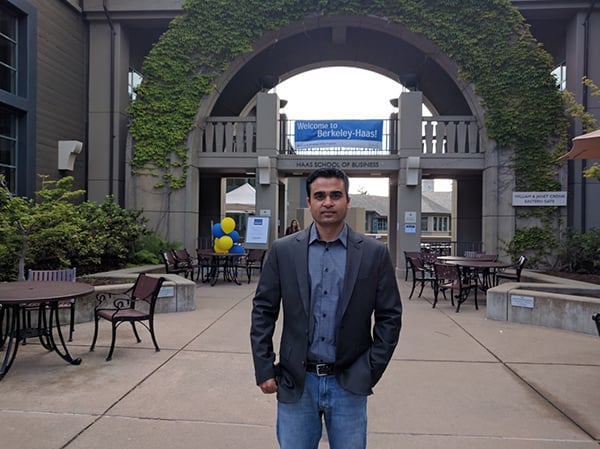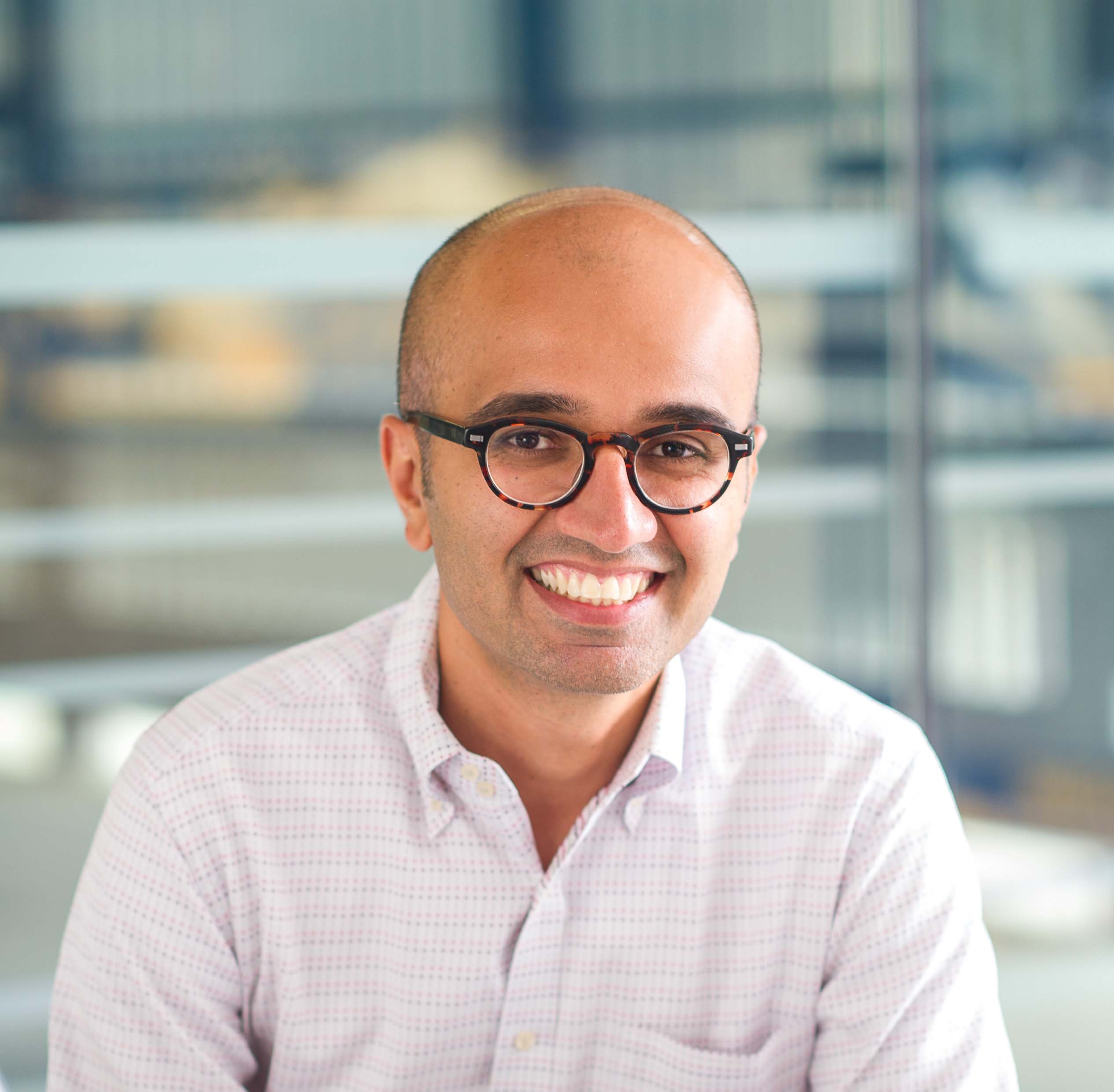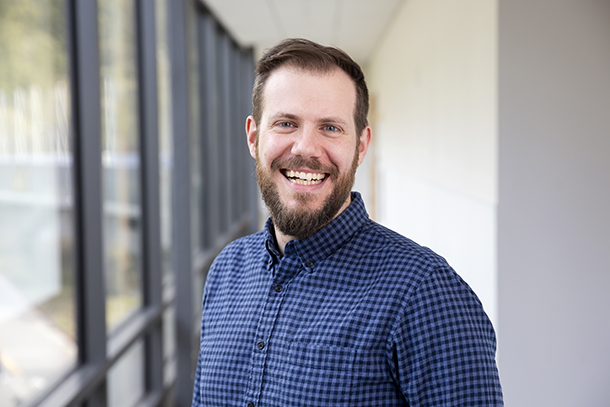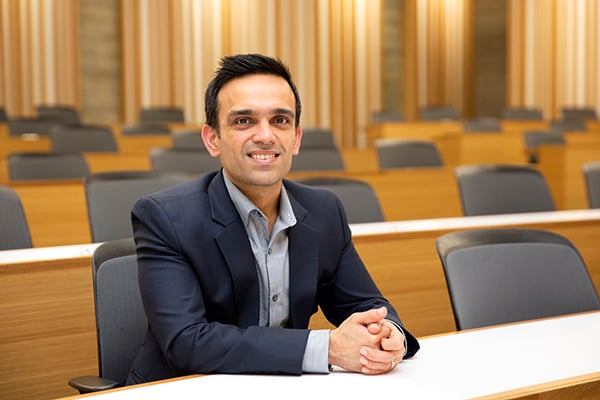Too often, businesses approach a problem with a tried-and-true solution already in mind. But that kind of approach makes innovation difficult – and can keep a business stuck in the same old patterns, according to Pradeep Khanal, a member of the Berkeley Haas Evening & Weekend MBA program class of 2019. “It's important to understand users and their needs well and get their feedback before getting to troubleshooting,” he says. In the business world, this human-centric approach is called design thinking, and it's very effective.
“Design thinking puts people at the center of the problem-solving process,” he says. “You identify something that needs to change and before jumping to a solution, you understand the persona better through user research and interviews and develop insights and a range of possibilities. It helps you frame a problem based on user interaction. The idea is to come up with a narrative about the problem that uncovers its key metrics in order to open up thinking about how to solve it,” he says.
Pradeep finds design thinking so important that during his time at Haas, he collaborated with Professors Clark Kellogg and Dave Rochlin on a course called “Fundamentals of Design Thinking” that rolled out in Fall 2018. Pradeep served as the lead graduate student instructor for both the full- and part-time classes. He also played a key role in teaching the concept at the EWMBA Mid-Program Academic Retreat, WE Innovate, held each January in Napa, and helped teach design thinking to a group of students visiting Berkeley Haas from Porto Business School in Senhora da Hora, Portugal.
Pradeep began his part-time MBA after seven years as an engineer at Intel. He'd been in a technical role leading engineering projects but wanted to better understand the business side of things. Since he knew he would continue working full-time, Haas' part-time program held appeal. He credits his MBA studies for facilitating his transition to his new role as senior product planner at Intel and his newfound ability to understand the bigger business picture.
He also had a hunch that a Berkeley Haas MBA could help him further integrate his long-held interest in social entrepreneurship and education: In 2008, he co-founded Daayitwa, an economic empowerment organization for youth. Two years later, he co-founded Mahim Ojha Memorial Community Library, both in his home country of Nepal. Since 2013, he's established a number of educational and mentorship initiatives including one that connects U.S. high school students with their peers in remote parts of the world. Currently, he's developing a business innovation course based on design thinking for a business school in Nepal.
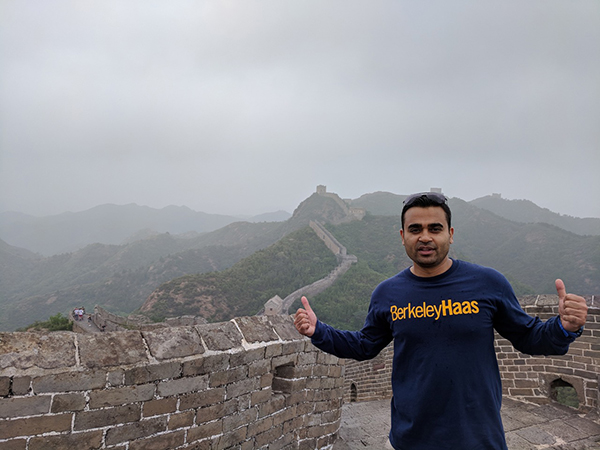
“Business education in Nepal is mostly theoretical; less focused on the practical,” he says. “The idea of talking to customers and using their insights isn't a common one, but it could really help change the business mindset in Nepal.”
“There's a misconception that evening and weekend MBA students don't get the same opportunities as full-time students”, Pradeep says. “But that just isn't the case.” He encourages his peers to use a design thinking framework to expand any preconceived notions of how they might leverage Haas resources during their program.
For example, Pradeep’s global learning experiences ranged from the Italia Innovation Program in Italy which he discovered through the Haas General Management & Leadership Club to serving as an MBA strategy fellow at Berkeley's Institute of European Studies to representing Haas at the Global Solutions Summit in Berlin, Germany and participating in the summer International Business Development (IBD) program in Beijing, China, consulting with fellow students for a fintech firm.
“Haas has so much to offer, and if part-time students can manage their time, there's much to be gained,” he says. “You can access these resources even while you work full time.
“My time at Haas has helped me see so many other opportunities that I didn't see when I was solely in the engineering space,” he says. “I'm aware of the many different directions my career can take – from social entrepreneurship, to teaching, to education technology.”




